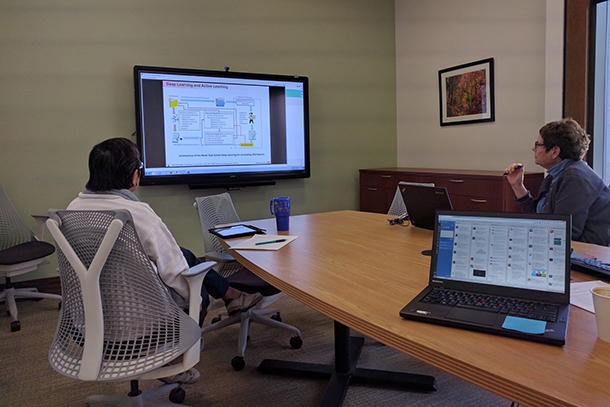Increasingly, “big data” is changing the world around us. According to the PBS special, “The Human Face of Big Data,” we’ve processed more data in the past two years than we have in the last 3,000 years. In particular, considering the vast amount of biomedical data being produced and processed each day, it is imperative that the data science community offers training programs to assist researchers in gaining the technical skill and tools to properly use, interpret and transform big data into information and knowledge.
The National Institutes of Health (NIH), the BD2K Centers-Coordination Centers (BD2K CCC), and the BD2K Training Coordinating Center (BD2K TCC) — based at USC Stevens Neuroimaging and Informatics Institute — have recognized this need and have collaborated to create the BD2K Guide to the Fundamentals of Data Science lecture series.
The weekly webinar is held 9 a.m. Fridays through May 19 at bigdatau.org/data-science-seminars.
The lecture series aims to change the way researchers think about data. The lectures occur live online and are also recorded for posting on the BD2K TCC Lecture series page along with a brief biography of the presenter, lecture abstract and presentation slides. Topics covered in this series include Data Indexing and Retrieval, Data Representation, Computing, Data Modeling and Inference, Open Science and more.
Providing essential training suitable for individuals at all levels, the live webinar is open to the public and offers the opportunity for curious minds to learn and submit questions to high-profile researchers.
“Scientific data presents unique challenges for 21st century biomedical research and scholarship,” said John Darrell Van Horn, PhD, associate professor of neurology at the Keck School of Medicine of USC and director of the BD2K TCC. “This data science webinar series is ideally suited for anyone, from student to established scientist, wishing to learn more about the fundamentals of how modern biomedical data is turned into new knowledge about health and disease.”
— Crystal Stewart


